The world of Web3 is constantly expanding, fueled by decentralized technologies like Blockchain Solutions and innovative Crypto Solutions. At the very heart of this revolution lies Bitcoin, the pioneering digital currency.
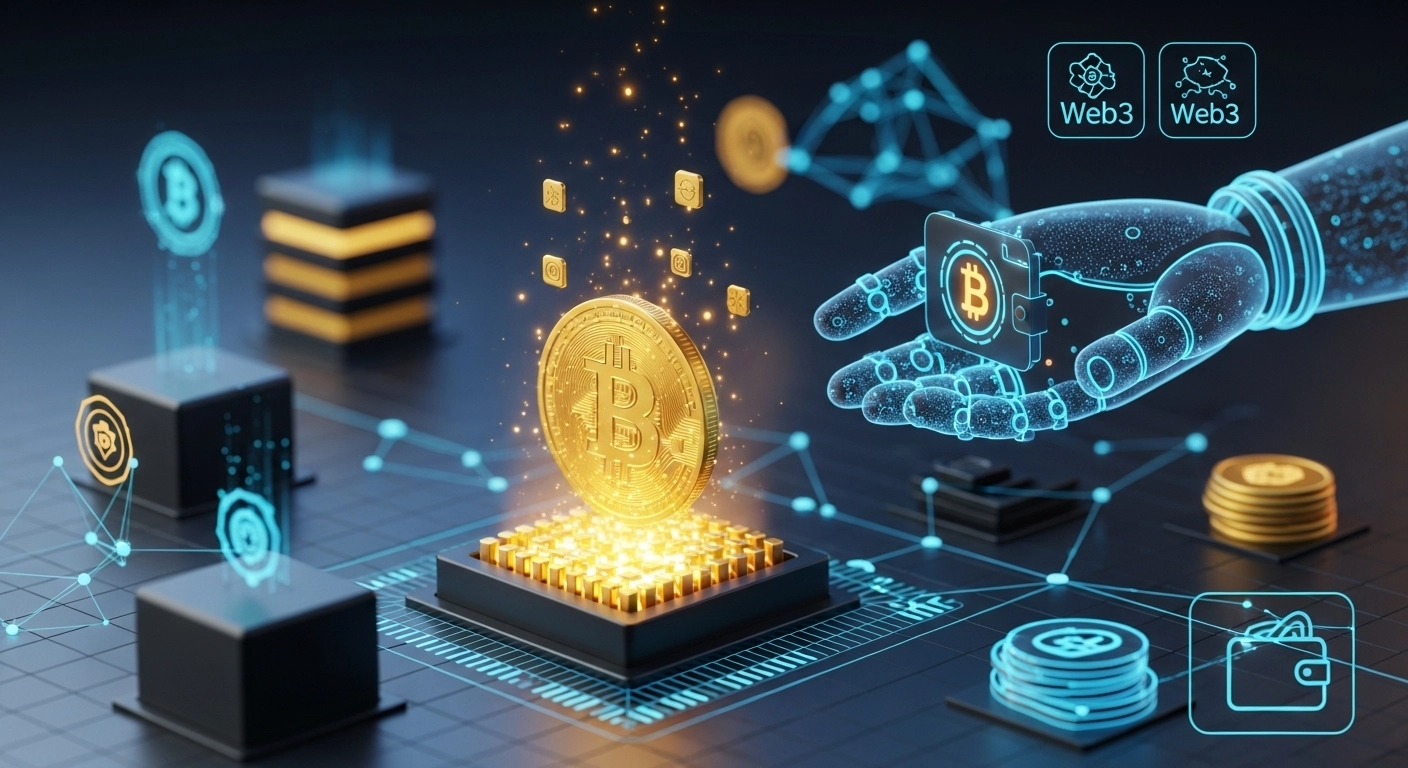
Where Can I Get AR/VR Features Integrated into My Android App in South Africa? Finding Your Ideal Partner
The digital landscape, including in vibrant markets like South Africa, is increasingly defined by immersive and interactive experiences. Businesses aiming to truly stand out are looking beyond traditional mobile applications and exploring the transformative power of Augmented Reality (AR) and Virtual Reality (VR).
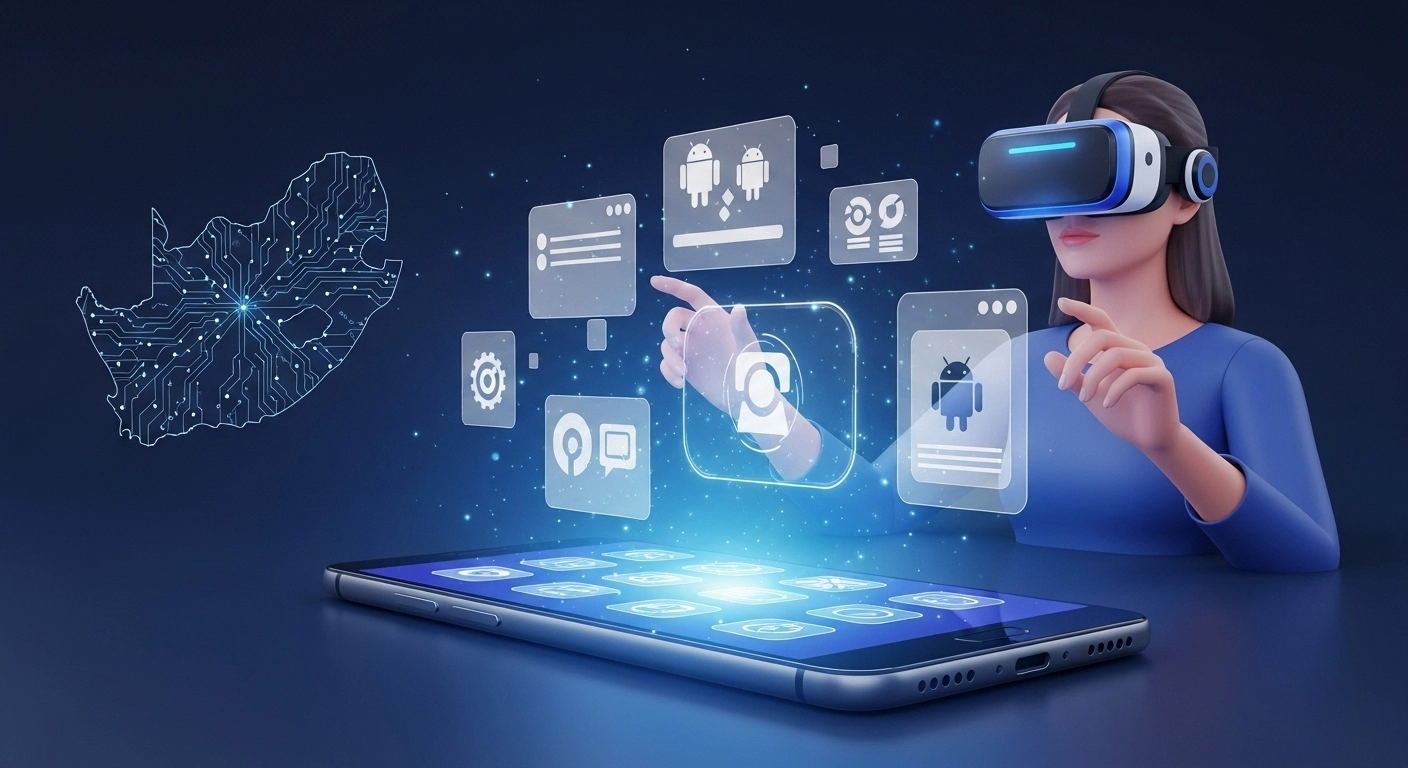

What is the Process for Finding the Owner of a USDT Address? Navigating Web3's Pseudonymity
In the evolving landscape of Web3, digital assets like USDT (Crypto Solutions) play a pivotal role in decentralized finance and value transfer. As businesses and individuals increasingly interact with these assets, questions often arise about the transparency and traceability of transactions.
What is Bitcoin’s Role in the Web3 Ecosystem? A Foundational Pillar for the Decentralized Future
When we talk about the Web3 ecosystem – a decentralized, user-owned, and intelligent internet – the conversation often gravitates towards complex Blockchain Solutions beyond Bitcoin, like those supporting elaborate Smart Contract Solutions or vast Metaverse Solutions.


What are the Basemarks for Web 3.0?
The internet is undergoing its most profound transformation yet. From the static "read-only" pages of Web 1.0 to the interactive "read-write" social platforms of Web 2.0, each iteration has reshaped our digital lives. Now, we stand on the cusp of Web 3.0, a paradigm shift that promises a more intelligent, decentralized, and user-centric online experience.
When Will Web 3.0 Be Released?
In discussions about the next generation of the internet, a common question arises: "When will Web 3.0 be released?" The answer, perhaps surprisingly, is that Web 3.0 isn't a future product with a scheduled launch date. It's a fundamental paradigm shift already in motion, a continuous evolution of the internet that is unfolding right now, piece by piece, influencing industries across the globe.

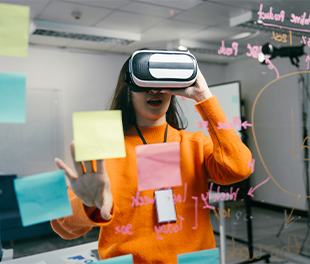
When Was Augmented Reality Invented? A Journey Through Time with G&G Innovations
In today's dynamic digital landscape, Augmented Reality (AR) feels like a technology of the moment, constantly pushing the boundaries of what's possible in Immersive Experiences, E-commerce Solutions, and even Education Technology. From virtual try-ons to real-time navigation overlays, AR has seamlessly woven itself into our daily lives.
How Can Augmented Reality Be Used in Everyday Life? A Glimpse into the Future, Today
Once confined to the pages of science fiction, Augmented Reality (AR) is rapidly transitioning from a futuristic concept to a practical, transformative technology woven into the fabric of our everyday lives. Unlike Virtual Reality (VR), which immerses users in entirely digital worlds, AR overlays digital information onto our real-world view, enhancing our perception and interaction with our surroundings.

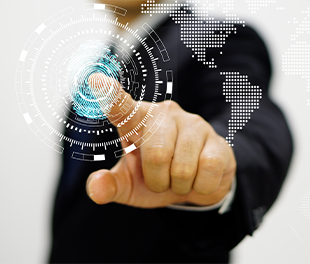
What is Interactive Response Technology? Powering Precision and Efficiency
In an increasingly complex and data-driven world, managing intricate processes with precision and efficiency is paramount. For many industries, particularly those with highly regulated and multi-faceted operations, the need for automated, real-time management is critical. This is precisely where Interactive Response Technology (IRT) steps in.
What is Interactive Communication Technology?
In an era defined by constant digital noise, passive consumption of information is no longer sufficient to capture and retain attention. Businesses and individuals alike are increasingly seeking experiences that are dynamic, responsive, and truly engaging. This is where Interactive Communication Technology comes to the forefront, fundamentally reshaping how we connect, learn, and transact in the digital realm.
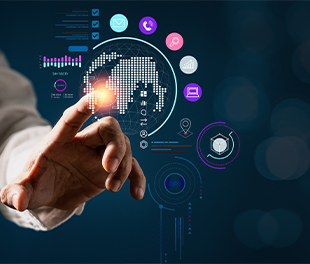
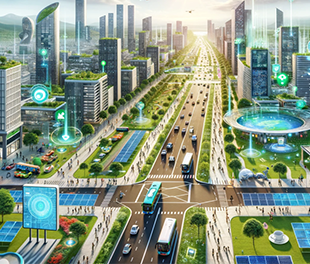
The Role of IoT and AI in Smart Cities and Urban Development
The vision of smart cities – urban areas that leverage technology to enhance the quality of life for their citizens, improve efficiency, and promote sustainability – is rapidly becoming a reality. At the heart of this transformation lie two powerful and synergistic technologies: the Internet of Things (IoT) and artificial intelligence (AI).
Sustainable Tech: How AI and Blockchain Are Driving Green Innovation
The urgent need for environmental sustainability is no longer a distant concern but a pressing global imperative. Businesses are increasingly recognizing their role in creating a greener future, and innovative technologies like artificial intelligence (AI) and blockchain solutions are emerging as powerful catalysts for green innovation.

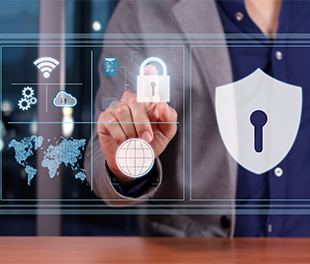
Cyber Hygiene 101: Essential Security Practices for Businesses and Individuals
In our hyper-connected digital world, maintaining robust cyber hygiene is no longer a luxury—it's a fundamental necessity for both businesses and individuals. Just as regular physical hygiene protects us from illness, diligent cyber hygiene safeguards our digital lives from a relentless barrage of threats, including sophisticated malware, insidious phishing attacks, crippling data breaches, and the devastating consequences of identity theft.
Gamification in Business: How Interactive Technologies Drive Engagement
In today's competitive business landscape, capturing and retaining attention is a constant challenge. Traditional methods often fall short in fostering deep engagement with employees, customers, and partners. However, a powerful strategy has emerged: Gamification. By leveraging the principles of game design and incorporating Interactive Technologies, businesses can transform mundane tasks and interactions into engaging and rewarding experiences.


From Web 2.0 to Web 3.0: How Businesses Can Make a Seamless Transition
The internet is constantly evolving, and the shift from the current Web 2.0 to the decentralized and user-centric Web 3.0 is poised to be the next major transformation. For businesses accustomed to the interactive but largely centralized platforms of today, understanding and navigating this transition is crucial for staying competitive and relevant in the years to come.
How Crypto Payments Are Transforming E-commerce and Finance
The way we transact online and manage finances is on the cusp of a significant transformation, driven by the increasing adoption of Crypto Solutions. For business leaders and technology innovators across the globe, understanding the profound impact of Crypto Payments on E-commerce Solutions and the broader financial landscape is becoming crucial for future-proofing their strategies.


The Rise of AI-Powered Chatbots: Revolutionizing Customer Support
In today's fast-paced digital world, customer expectations for instant support are higher than ever. Businesses across industries are increasingly turning to AI Automation and artificial intelligence to meet these demands, and at the forefront of this revolution are AI-Powered Chatbots.
The Future of Metaverse Marketing: Opportunities and Challenges for Brands
The Metaverse is no longer a futuristic fantasy; it's a rapidly evolving reality, presenting brands with unprecedented opportunities to engage with their audiences in immersive and interactive ways. As businesses across the globe, from the UAE to the USA, explore the potential of this paradigm shift, understanding the nuances of Metaverse Solutions is crucial for strategic marketing success.


Why Enterprises Should Prioritize Cloud Security in 2025
As enterprises increasingly migrate their operations to the cloud, prioritizing cloud offerings and IT cloud computing security becomes paramount. By 2025, the cloud will be the backbone of most enterprise operations, making it a prime target for sophisticated cyberattacks.
The Impact of Smart Contracts on Business Efficiency and Security
Smart contracts, powered by blockchain solutions, are revolutionizing business operations by automating processes and enhancing security. These self-executing contracts, with the terms of the agreement directly written into code, eliminate the need for intermediaries, reducing costs and increasing efficiency. Understanding their impact is essential for businesses seeking to streamline operations and enhance security in the digital age.


How Extended Reality (XR) Is Reshaping Remote Work and Collaboration
The landscape of remote work is undergoing a profound transformation, driven by the immersive capabilities of Extended Reality (XR). XR, encompassing Augmented Reality (AR), Virtual Reality (VR), and Mixed Reality (MR), is breaking down geographical barriers and fostering more engaging and productive remote collaboration.
The Role of AI in Enhancing Customer Experience and Engagement
In today's competitive market, delivering exceptional customer experiences is paramount. Artificial Intelligence (AI) is rapidly transforming how businesses interact with their customers, offering unprecedented opportunities to personalize interactions and enhance engagement.


Decoding Web 3.0: How Businesses Can Prepare for the Next Internet Evolution
The internet is evolving rapidly, and Web 3.0 is at the forefront of this transformation. This next generation of the internet promises a decentralized, intelligent, and immersive experience, redefining how businesses operate in the digital world. But what exactly is Web 3.0, and how can businesses prepare for this shift? Let’s break it down.
Digital Marketing in the Web 3.0 Era: What Brands Need to Know
The internet is evolving, and with the rise of Web 3.0, digital marketing is undergoing a significant transformation. Brands must adapt to this new era to stay relevant and connect with their audiences effectively.


Choosing the Right CRM for Your Business: A Complete Guide
In today's competitive business landscape, effective customer relationship management (CRM) is essential for growth and success. A well-chosen CRM system can streamline operations, enhance customer interactions, and drive revenue.
Why Cybersecurity Should Be a Priority for Businesses in the Digital Age
In today's hyper-connected world, businesses of all sizes rely heavily on digital technologies to operate efficiently and stay competitive. However, this reliance also makes them vulnerable to a growing number of cybersecurity threats.


The Growing Threat of Cybersecurity Attacks in 2025: How to Stay Protected
The digital landscape is constantly evolving, and as we approach 2025, the sophistication of cybersecurity threats is escalating. Staying ahead of these threats is no longer a luxury, but a necessity for businesses and individuals alike.
The Role of Augmented Reality (AR) in E-commerce and Retail
The retail landscape is constantly evolving, and emerging technologies like Augmented Reality (AR) are playing a pivotal role in shaping its future. AR, which overlays digital information onto the real world, is no longer a futuristic concept; it's a practical tool that e-commerce and retail businesses are using to enhance the customer experience and drive sales.


The Future of Mixed Reality (MR) in Education and Training
Mixed Reality (MR), a powerful blend of Augmented Reality (AR) and Virtual Reality (VR), is poised to revolutionize education and training. By seamlessly merging the physical and digital worlds, MR creates immersive and interactive learning experiences that can transform how we acquire knowledge and skills.
The Rise of NFTs in Digital Ownership and Brand Engagement
Non-fungible tokens, or NFTs, are revolutionizing how we think about digital ownership and how brands connect with their audiences. These unique digital assets, powered by blockchain solutions and often associated with web 3.0 technology, are transforming everything from art and collectibles to gaming and brand loyalty programs.


How AI and Blockchain Are Revolutionizing Business Operations?
Artificial intelligence (AI) and blockchain technology are no longer futuristic buzzwords; they're rapidly transforming how businesses operate, creating unprecedented opportunities for efficiency, security and innovation.


